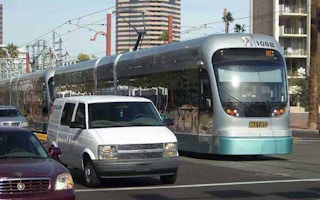The global economy could save up to $70tr over the next 40 years by revamping urban transport networks to reduce congestion, enhance fuel efficiency, and promote public transport, cycling and walking.
That is the conclusion of a major new report from the International Energy Agency (IEA), entitled A Tale of Renewed Cities, which details how green transport policies are delivering myriad benefits for some of the world’s most congested and polluted cities.
The report argues that the adoption of so-called “avoid, shift and improve” policies that encourage city dwellers to avoid unnecessary journeys, shift towards public transport, and improve the efficiency of the transport they use can deliver significant economic benefits, as well as lower greenhouse gas emissions and improved health and quality of life.
However, it also warns that cities have little option but to embrace greener transport networks, arguing that many urban centres are currently burdened with transport infrastructure that is not fit for purpose.
Writing in the foreword to the report, IEA executive director Maria van der Hoeven said that with city’s expected to account for 70 per cent of global population by 2050 there was an urgent need for improved transport networks.
“The effects of growing travel demand and increasing shifts to private motorisation are leading to escalating roadway congestion that costs billions of dollars in wasted fuel and time,” she said. “Moreover, motorised vehicle traffic has significant adverse effects on health, contributing substantially to respiratory and cardiovascular diseases from outdoor air pollution, and deteriorated safety in cities, leading to more than 1.3 million deaths per year from traffic accidents. Urgent policy attention to improve the energy efficiency of urban transport systems is thus needed not only for energy security reasons, but also to mitigate the negative climate, noise, air pollution, congestion and economic impacts of rising urban transport volumes and energy consumption.”
The report examined transport policies in 30 cities around the world and particularly highlighted how reforms in Belgrade, Seoul and New York had significantly improved the transport network, cutting environmental impacts and boosting the economy.
For example, it details how a refurbishment of Belgrade’s rail system led to a tripling in passenger numbers, how the introduction of express bus services in Manhattan cut journey times and increased passenger numbers, and how a change to bus driver incentives in Seoul led to improved speed and safety.
However, the report acknowledges that transport policies need to be carefully tailored for individual cities. For example, it outlines how developing world cities that tend to suffer from urban sprawl can often improve transport networks by delivering land use policies that concentrate development in areas with good transport links.
Similarly, heavily congested cities in both industrialised and developing economies are encouraged to explore a raft of policies designed to limit car use. “Policies that discourage vehicle ownership (e.g. vehicle quotas and vehicle registration taxes) and private motorised travel (e.g. road pricing and parking fees) can help to reduce or stabilise increasing traffic levels,” the report states. “Improved travel management technologies, such as advance traffic signalisation and real-time travel information, can also help to improve mobility and system flow.”
The report comes as London Mayor Boris Johnson’s Road Task Force today published a major new strategy designed to ensure the capital’s road network can cope with projected population increases without leading to worsening environmental impacts.
The wide-ranging strategy sets out plans for new road tunnels, greater use of tolling for new infrastructure, an increased focus on cycling, the wider use of smart traffic management systems, and initiatives to discourage business deliveries from peak times.
”[The plan] is in tune with my 2020 Vision, our plans on cycling and for investment in London’s roads and streets,” said Johnson. “For this great city to retain its global pre-eminence, it is essential we continue to invest and have the courage and vision to develop and drive forward innovative solutions. This is a fantastic contribution and I look forward to working with partners, including those represented on the Roads Task Force, in taking many of these ideas forward.”








